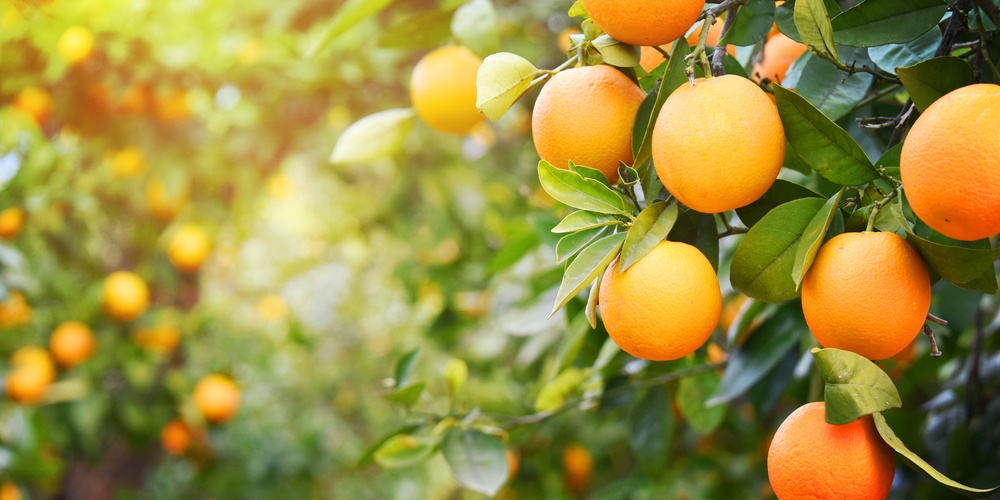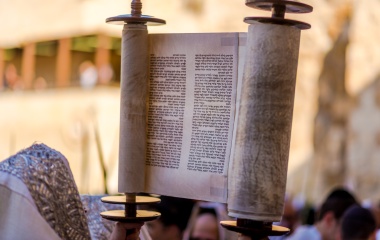
Those of us living in Canada are especially sensitive to the importance of language to the fabric of a country. The language that one speaks is, more often than not, indicative of cultural norms and attitudes. It is thus no surprise that on many an issue, the views of the people of Quebec differ sharply from those residing in the rest of the country. While it may seem strange to us today, the modern-day Zionist movement debated the question of which official language the nascent state would recognize.
The Mishna (Sotah 7:1) lists those mitzvoth requiring speech which may be said in any language, and distinguishes them from those for which Hebrew is required. First on the latter list is the opening mitzvah of this week's parsha, bikkurim. The farmer living in Israel had to bring the first fruits of the seven species indigenous to the land of Israel to the Temple, present them to the kohen, and recite a brief synopsis of Jewish history. In addition to verbally expressing one's gratitude to G-d for His many blessings, the farmer declared that living in Israel is the culmination of the historic mission of the Jewish people. The burden of slavery has been replaced by the "rejoicing in the good" (Devarim 26:11) in the land "flowing with milk and honey" (Devarim 26:9).
This declaration is familiar to us from the Passover Haggadah, where the transition from slavery to freedom serves as the central motif of the Seder. However, there is a striking difference between the two recitals. The Mishna is insistent that the farmer recite the bikkurim text in Hebrew, even if it comes at the expense of comprehension. The Mishna (Bikkurim 3:7) records that the kohen would have the farmer repeat the words of his declaration after him. Apparently, many a farmer was illiterate and did not fully understand what they were saying. At the seder, however, the focus is on understanding, not on rote recital. Jewish law insists that the Haggadah be read in a language that is understood by the participants; to do otherwise negates the mitzvah of telling the story of the Exodus.
How can we explain the shifting focus of these two recitals of the same text?
We all know that in different contexts the same exact words can have radically different meanings. The seder is the ideal setting for parents teaching children, as the family internalizes the message of Jewish nationhood. Not only do we learn about our past, yearn for future redemption and gain inspiration for the present, we experience what being Jewish is all about. While Pesach marks the founding of our nation, it is actually a very personal holiday. "One is obligated to see oneself as if they had personally left Egypt."
Judaism is not about recounting the history of our ancestors, or blindly mimicking the practices of our parents, or nostalgia for times gone by. Judaism is about us, how we can apply a Divine system to our personal, communal and worldly challenges. It must be relevant for us in the context of the realities of today's world. It is the perceived irrelevance of Judaism that accounts for the fact that, for so many Jews, the Torah does not seem like "a tree of life". When, at the seder, we focus on our role in the world, then we must teach it in a "language" that people understand.
The mitzvoth whose texts can be recited in any language are those mitzvoth that relate to our personal growth and our personal connection to G-d. The Mishna enumerates them; prayer; the shema, the acceptance of the yoke of heaven; birchat hamazon; the tragic recital of the Sotah, the accused adulterer; and personal oaths. Personal growth requires complete understanding.
The farmer’s recital of this same text serves a very different purpose, almost the opposite function. It was a statement of a nation rejoicing in the blessings of its land, a declaration that the hardships endured in settling this wonderful country were not for naught. We "rejoice in all the good that G-d your Lord has granted you and your family, [and rejoice with] the Levite and the stranger who is in your midst" (Devarim 26:11). The Mishna describes the great pageantry of the nation escorting the farmers with their fruit to the Temple. It was a national holiday. Even workers, who in Talmudic times were strictly forbidden from taking time off in the middle of the day (even to greet a Torah scholar), were to join the festivities (Mishna Bikkurim 3:3).
Pesach, meant to inspire a personal commitment to Judaism, is celebrated in the privacy of one's home. The bikkurim, celebrating the settling of the land, is a national event. And the nation of Israel speaks only one language. It is a holy language for a holy people in a holy land. The blessings and curses recorded later in the parsha; the reading of certain parts of the Torah by the king every seven years; and birchat kohanim, the daily blessings of the kohanim, were all were to be recited only in Hebrew, reflecting their national character.
The mitzvah of bikkurim is introduced with the phrase, "And it will be when you enter the land". Now that the Jewish people have returned to the land, may we merit bringing the bikkurim, rejoicing with our families and communities.



